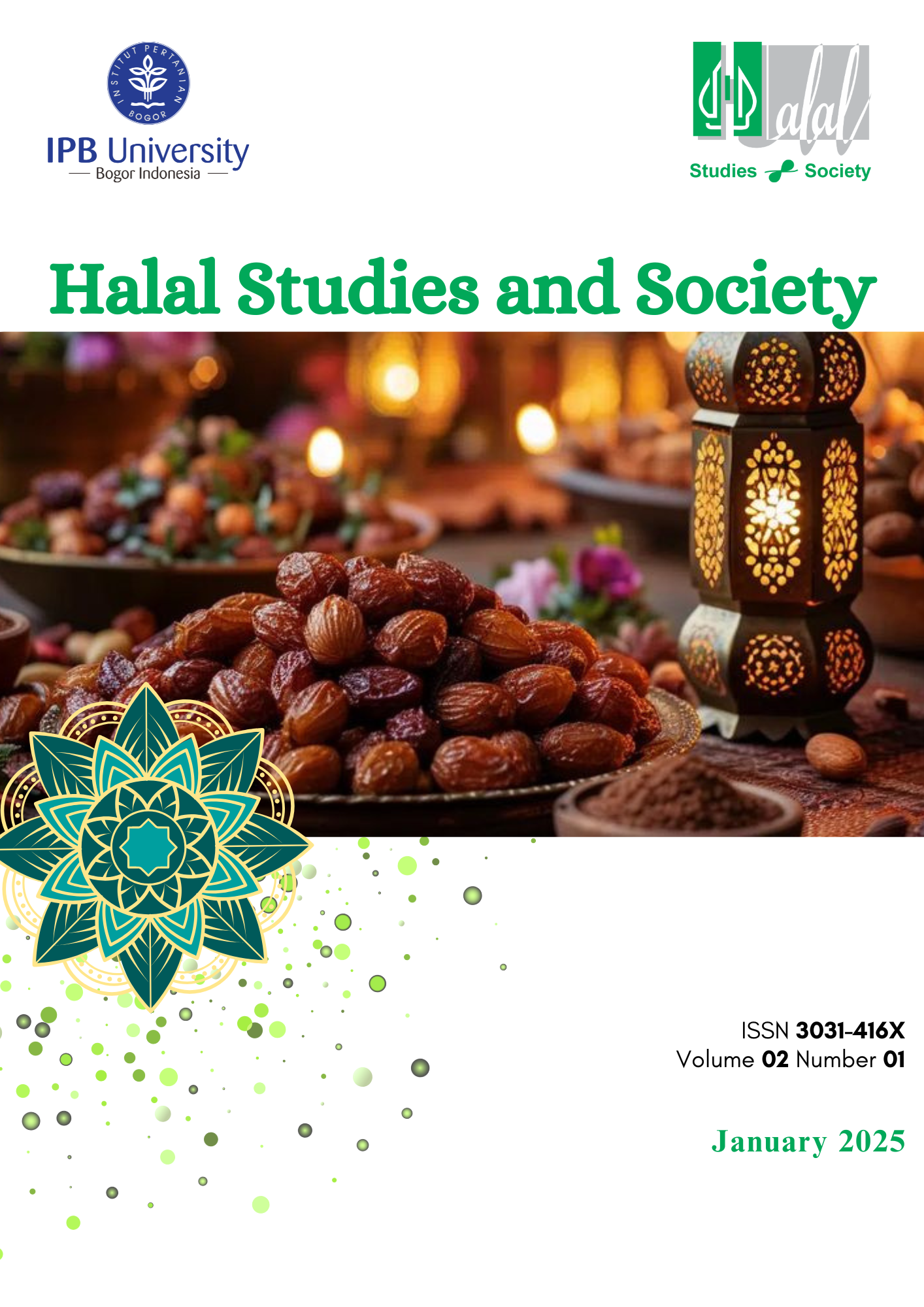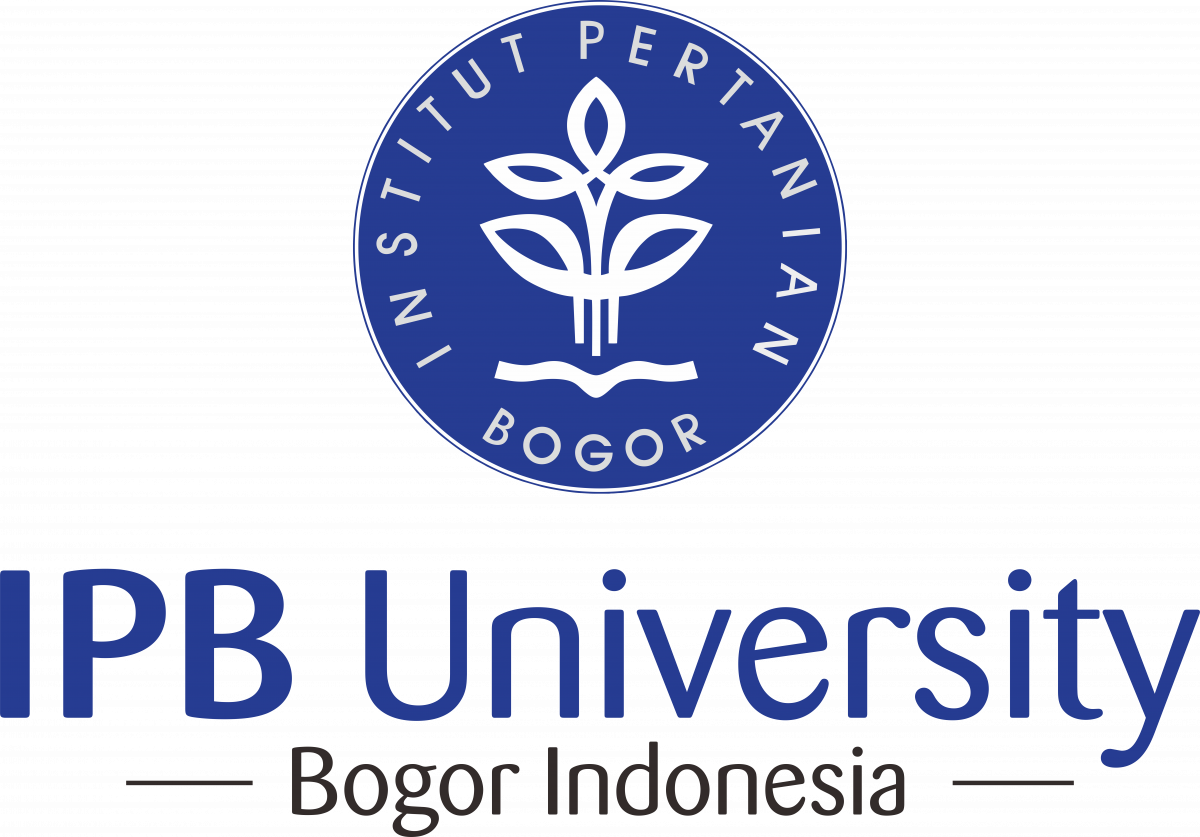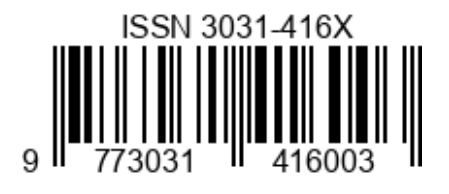Halal practices for responsible production and consumption towards sustainable future
DOI:
https://doi.org/10.29244/hass.2.1.1-3Keywords:
Ethical production, Green marketing, Halal practices, Responsible consumption, Sustainability, Sustainable developmentAbstract
Halal practices rooted in Islamic principles are offering a framework of ethical, social, and environmental responsibilities with modern sustainability efforts. Therefore, this research aims to explore the intersection of halal practices and sustainable development, focusing on responsible production and consumption to support environmental, social, and economic well-being. A qualitative method is used to analyze existing literature on halal practices, sustainability, and green marketing strategies, with case research from various industries implementing halal principles. These principles emphasize ethical agricultural and livestock farming, humane animal treatment, mindful consumption, and waste minimization, which resonate with the pillars of sustainability. Meanwhile, green marketing in halal industry catalyzes the promotion of environmentally friendly products and ethical consumer behavior, transcending religious boundaries and appealing to diverse markets. The integration of the principles into production and marketing strategies positions the industry as a model for sustainable and ethical practices due to increased global demand for halal-certified products. The results show that halal practices significantly contribute to sustainability across various industrial sectors by prioritizing social and environmental well-being. The potential of halal practices is reported to drive global sustainability and enhance a culture of responsibility across industries and consumer segments.
References
Ahmad S, Ali F, Khan M. Halal certification and its impact on sustainable business practices. Journal of Islamic Marketing. 2018.
Ali H, Chen T, Hao Y. Sustainable manufacturing practices, competitive capabilities, and sustainable performance: the moderating role of environmental regulations. Sustainability (Switzerland). 2021;13(18). https://doi.org/10.3390/su131810051
Al-Qaradāwī Y. The Lawful and the Prohibited in Islam: Al-Halal Wal-haram Fil Islam. International Islamic Federation of Student Organizations. 1984.
Alzeer J, Rieder U, Abou Hadeed K. Good agricultural practices and its compatibility with Halal standards. Trends in Food Science & Technology. 2020;102:237-241. https://doi.org/10.1016/j.tifs.2020.02.025
Aung TS. Quranic Perspectives on Sustainability. Eurasia Review. 2024.
Bsoul L, Omer A, Kucukalic L, Archbold RH. Islam's perspective on environmental sustainability: a conceptual analysis. Social Sciences. 2022;11(6):228. https://doi.org/10.3390/socsci11060228
Dahlan M. Animals in Islam and halal ethics. The Halal Food Handbook. 2020;39-46. https://doi.org/10.1002/9781118823026.ch3
Farouk MM, Al-Mazeedi HM, Sabow AB, Bekhit AED, Adeyemi KD, Sazili AQ, Ghani A. Halal and kosher slaughter methods and meat quality: A review. Meat Science. 2014;98(3):505-519. https://doi.org/10.1016/j.meatsci.2014.05.021
Halstead JM. Islamic values: a distinctive framework for moral education? Journal of Moral Education. 2007;36(3):283-296. https://doi.org/10.1080/03057240701643056
[ICDT-OIC] Islamic Centre for Development of Trade. Organisation of Islamic Cooperation Annual report on trade among The OIC member states (Vol. 3, Issue 1). 2022.
[ISA] Islamic Service of America. Pure and good. The Halal and Green Consumer. Islamic Services of America. 2021.
Izberk-bilgin E, Nakata CC. A new look at faith-based marketing: The global halal market. Business Horizons. 2016. https://doi.org/10.1016/j.bushor.2016.01.005
Khan IA. The advantages of halal food for health and well-being. Journal of Clinical and Basic Research. 2023;7(4):23-24. https://doi.org/10.61186/jcbr.7.4.23
Martins A. Green marketing and perceived SME profitability: The mediating effect of green purchase behaviour. Management of Environmental Quality: An International Journal. 2022;33(2):281-299. https://doi.org/10.1108/MEQ-04-2021-0074
Mukonza C, Hinson RE, Adeola O, Adisa I, Mogaji E, Kirgiz AC. Green Marketing: An Introduction. 2021. pp. 3-14. https://doi.org/10.1007/978-3-030-74065-8_1
Nekmahmud M, Fekete-Farkas M. Why not green marketing? Determinates consumers' intention to purchase green in a new developing nation. Sustainability (Switzerland). 2020;12(19):1-31. https://doi.org/10.3390/su12197880
Purvis B, Mao Y, Robinson D. Three pillars of sustainability: in search of conceptual origins. Sustainability Science. 2019;14:681-695. https://doi.org/10.1007/s11625-018-0627-5
Sarkar A. Green marketing and sustainable development-challenges and opportunities. 2012.
Shah SA, Azhar SM, Bhutto NA. Halal marketing: A marketing strategy perspective. 2020. https://doi.org/10.1108/JIMA-11-2018-0211
Siba Borah P, Korankye B. An evaluation on the prevalence of green marketing: A business myth or reality. Future of Business Administration. 2022;1(2):15-29. https://doi.org/10.33422/fba.v1i2.332
Sørensen JT, Sandøe P, Halberg N. Animal welfare as one among several values to be considered at farm level: the idea of an ethical account for livestock farming. Acta Agriculturae Scandinavica, Section A-Animal Science. 2001;51(S30):11-16. https://doi.org/10.1080/090647001316922992
Tayob S. Sustainability and halal: Procedure, profit and ethical practice. Journal of Digital Marketing and Halal Industry. 2021;3(2):95-110. https://doi.org/10.21580/jdmhi.2021.3.2.9586
Velenturf APM, Purnell P. Principles for a sustainable circular economy. Sustainable Production and Consumption. 2021;27:1437-1457. https://doi.org/10.1016/j.spc.2021.02.018
Wilson JA, Liu J. Shaping the halal into a brand? Journal of Islamic Marketing. 2010;1(2):107-123. https://doi.org/10.1108/17590831011055851
Yusiana R, Widodo A, Hidayat AM. Green marketing: Perspective of 4P's. 2020. https://doi.org/10.2991/aebmr.k.200514.024












